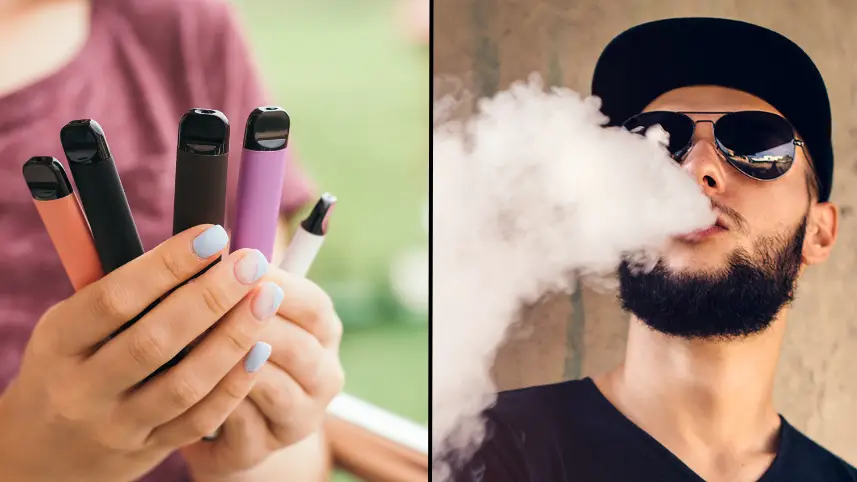
Experts have revealed which vape flavours are potentially more riskier than others.
Watch below:
As of 2022, 4.3 million people in Britain use e-cigarettes, which has risen by 8.3 percent compared to last year, according to ash.org. 57 percent of vapers are also believed to be ex-smokers.
Advert
Despite the increase in e-cig use, one study has determined that certain flavours can be worse than others.
A study conducted by the Department of Environmental Medicine at the University of Rochester Medical Center has evaluated the effects of particular flavours of e-cigarette consumption.
"E-cigarette consumption has been vastly increased over the recent years especially among American youth primarily due to flavors that are marketed with alluring names," the US study argues.
"With the declined consumption of cigarettes, e-cigarettes are advertised as a healthier alternative as the flavouring used in e-cigarettes are considered safe for ingestion."

It adds: "Some of the flavours used in e-liquids pose a potential health risk for its users."
The study determines that some fluid flavours are worse than others. These flavours are:
- cinnamaldehyde found in cinnamon
- o-vanillin found in vanilla
- pentanedione found in honey
"Our data suggest that the flavorings used in e-juices can trigger an inflammatory response in monocytes, mediated by ROS production, providing insights into potential pulmonary toxicity and tissue damage in e-cigarette users," it concludes.
Another independent report, commissioned by the Office for Health Improvement and Disparities at the Department of Health and Social Care, has suggested that vaping could be better for you than smoking, in the short-term anyway.
Dr Debbie Robson, senior lecturer in tobacco harm reduction at King’s College, and one of the authors of the report, said: “The levels of exposure to cancer causing and other toxicants are drastically lower in people who vape compared with those who smoke.

“Helping people switch from smoking to vaping should be considered a priority if the Government is to achieve a smoke-free 2030 in England.”
Professor Ann McNeill, lead author of the study, added: “Smoking is uniquely deadly and will kill one in two regular sustained smokers, yet around two-thirds of adult smokers, who would really benefit from switching to vaping, don’t know that vaping is less harmful. However, the evidence we reviewed indicates that vaping is very unlikely to be risk-free.
“So we strongly discourage anyone who has never smoked from taking up vaping or smoking.”